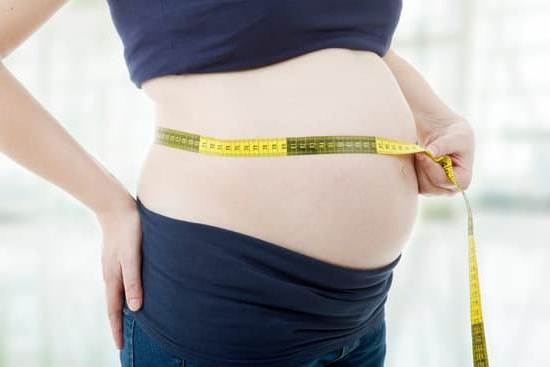Pregnancy is a beautiful and transformative journey for women, marked by various changes in their bodies to accommodate the growing baby. One common occurrence that many pregnant women experience is swelling, also known as edema. This swelling can affect different parts of the body, from the feet and ankles to the hands and face. But when does swelling start during pregnancy?
During pregnancy, hormonal changes lead to increased blood flow and bodily fluids, causing tissues to retain more water. This often results in swelling, which typically begins around the fifth month of pregnancy. However, some women may notice mild swelling earlier on, while others may not experience it until later in their pregnancies.
Understanding when swelling starts during pregnancy is essential for expectant mothers to be able to monitor their symptoms effectively. Early detection of swelling can help in managing it better and seeking appropriate medical advice if necessary.
In the following sections, we will explore the reasons behind pregnancy-related swelling, how it progresses over time, coping strategies for relief, when to seek medical help, potential complications, prevention methods, and more. Stay tuned to learn more about this common yet sometimes challenging aspect of pregnancy.
What Causes Swelling During Pregnancy
Swelling during pregnancy, also known as edema, is a common symptom that many women experience. It is often caused by the body retaining more water than usual and can occur in various parts of the body, such as the hands, feet, ankles, and face. Understanding the reasons behind this swelling can help expectant mothers better cope with this uncomfortable symptom.
There are several factors that contribute to swelling during pregnancy. One of the main reasons is an increase in bodily fluids to support both the mother and the developing baby. Additionally, hormonal changes play a significant role in causing fluid retention, especially as the pregnancy progresses. The pressure on blood vessels from the expanding uterus can also lead to reduced circulation and result in swelling in different areas of the body.
As for when swelling starts during pregnancy, it can vary from woman to woman. Some may start experiencing mild swelling as early as the first trimester due to hormonal shifts and increased blood volume.
However, it is more common for noticeable swelling to occur around the midway point of pregnancy or even later in the third trimester when the body retains even more fluid. It’s essential for pregnant individuals to pay attention to their bodies and monitor any unusual or severe swelling that may indicate a potential issue needing medical attention.
- Fluid retention due to increased bodily fluids
- Hormonal changes impacting fluid regulation
- Pressure on blood vessels from uterus expansion
Overall, understanding why swelling occurs during pregnancy can help women navigate this challenging symptom with greater ease. By being aware of the causes and knowing when swelling typically begins during pregnancy, expectant mothers can prepare themselves mentally and physically for this common aspect of gestation. Remembering to stay hydrated, elevate swollen limbs when possible, and consult a healthcare provider if concerned about excessive swelling are essential steps in managing this discomfort throughout pregnancy.
When Does Swelling Start During Pregnancy
During pregnancy, it is common for women to experience swelling due to the body retaining more fluids. Swelling, also known as edema, typically starts to occur around the fifth month of pregnancy. However, every woman is different, and some may start experiencing swelling earlier or later in their pregnancy.
To help you better understand when swelling starts during pregnancy, here are some early signs and symptoms to look out for:
- Puffy fingers and hands: You may notice that your fingers and hands start to feel tight or appear swollen.
- Swollen ankles and feet: Your ankles and feet may start to swell, especially towards the end of the day or after long periods of standing.
- Swelling in the face: Some women may experience mild swelling in their face, particularly around the eyes and cheeks.
It’s essential to pay attention to these early signs of swelling during pregnancy as they can sometimes indicate other complications such as preeclampsia. Monitoring your symptoms and discussing any concerns with your healthcare provider can help ensure a healthy pregnancy for both you and your baby.
Remember that staying hydrated, elevating your legs when possible, avoiding long periods of standing or sitting, wearing comfortable shoes, and engaging in gentle exercises can help alleviate swelling during pregnancy. If you have any questions or notice sudden or severe swelling in your extremities, don’t hesitate to reach out to your doctor for further guidance and support.
How Does Swelling Progress Throughout Pregnancy
During pregnancy, swelling, also known as edema, is a common occurrence that many expectant mothers experience. While some level of swelling is normal due to the body’s increased blood volume and retention of fluids, it is essential to monitor its progression throughout pregnancy. Knowing when swelling typically starts during pregnancy can help women prepare for possible discomfort and take necessary precautions.
Swelling in pregnancy often begins around the fifth month or in the second trimester. This is when many women first notice mild puffiness in their feet, ankles, and hands. The increasing pressure on veins leading back to the heart from the lower body can contribute to this initial swelling. Hormonal changes and the expanding uterus putting pressure on blood vessels are also factors that play a role in the onset of edema during pregnancy.
As pregnancy advances into the third trimester, typically around weeks 27 to 36, swelling tends to become more pronounced for many women. The combination of the growing baby putting more pressure on blood vessels, as well as increased fluid retention in the body, can exacerbate edema during this time. It is important for pregnant women to stay hydrated, elevate their legs when possible, and wear comfortable shoes to alleviate some of the discomfort associated with swelling.
| Stage of Pregnancy | Signs of Swelling |
|---|---|
| Second Trimester (around 5 months) | Mild puffiness in feet, ankles, and hands |
| Third Trimester (weeks 27-36) | Pronounced swelling due to increased pressure on blood vessels and fluid retention |
Coping Strategies for Managing Swelling During Pregnancy
During pregnancy, swelling is a common occurrence due to the increase in blood volume and fluid retention in the body. This can lead to discomfort, especially in the feet, ankles, and hands. Coping with swelling during pregnancy is essential to ensure the well-being of both the mother and baby. Implementing certain strategies can help alleviate some of the discomfort associated with swelling.
Stay Hydrated and Elevate Your Feet
One effective way to manage swelling during pregnancy is to stay hydrated by drinking plenty of water throughout the day. Dehydration can actually worsen swelling, so it’s important to maintain a good fluid intake. Additionally, elevating your feet when sitting or lying down can help reduce swelling in the lower extremities. Prop your feet up on a pillow while resting to encourage proper circulation and decrease fluid build-up.
Wear Comfortable Clothing and Supportive Shoes
Choosing loose-fitting clothing made from breathable fabrics can also aid in managing swelling during pregnancy. Tight clothing can restrict circulation and exacerbate swelling, so opt for comfortable attire that allows for proper blood flow. Similarly, wearing supportive shoes that provide adequate arch support and cushioning can help alleviate foot and ankle swelling. Avoid high heels or shoes that are too tight, as they can contribute to discomfort.
Engage in Gentle Exercise and Practice Relaxation Techniques
Engaging in regular, low-impact exercise such as walking or swimming can be beneficial for reducing swelling during pregnancy. Movement helps promote circulation and prevent fluid retention. Additionally, practicing relaxation techniques like prenatal yoga or meditation can help reduce stress levels, which may contribute to swelling.
Remember to listen to your body and avoid any activities that cause pain or discomfort. By incorporating these coping strategies into your daily routine, you can effectively manage swelling during pregnancy and improve your overall well-being.
When to Seek Medical Help for Swelling During Pregnancy
During pregnancy, it is normal for women to experience some degree of swelling due to the increased fluid retention and changes in circulation. However, there are instances when swelling can be a sign of a more serious condition that requires medical attention. So, when does swelling start during pregnancy?
Swelling typically begins around the fifth month of pregnancy, but it can vary from woman to woman. Some may notice mild swelling earlier on, while others may not experience it until later in their pregnancy.
It’s important to pay attention to the progression and severity of the swelling throughout your pregnancy. If you notice sudden or severe swelling in your hands, face, legs, or feet, it could be a sign of preeclampsia, a serious condition that can develop during pregnancy.
Other symptoms of preeclampsia include high blood pressure, protein in the urine, headaches, vision changes, and abdominal pain. If you experience any of these symptoms along with significant swelling, it is crucial to seek medical help immediately.
In addition to preeclampsia, excessive and sudden swelling could also be a sign of other complications such as gestational diabetes or deep vein thrombosis. Therefore, always consult with your healthcare provider if you have concerns about the timing or extent of your swelling during pregnancy.
Remember that it’s better to be cautious and have any unusual swelling evaluated by a medical professional rather than ignore potential warning signs. Early detection and management can help prevent serious complications for both you and your baby.
| Signs | Complications |
|---|---|
| Sudden or severe swelling | Preeclampsia |
| Excessive edema | Gestational diabetes |
| Swelling with pain or redness | Deep vein thrombosis |
Complications Associated With Severe Swelling During Pregnancy
During pregnancy, experiencing some degree of swelling is normal due to the changes in the body’s circulation and fluid retention. However, in some cases, swelling can become severe and lead to complications that may affect both the mother and the baby. It is essential for pregnant individuals to be aware of these potential risks associated with severe swelling during pregnancy.
Pre-Eclampsia
One of the primary concerns related to severe swelling during pregnancy is the development of pre-eclampsia. This condition is characterized by high blood pressure and protein in the urine, and it can have serious implications for both the mother and the baby. Pre-eclampsia requires close monitoring by healthcare professionals to ensure a safe pregnancy and delivery.
Gestational Diabetes
Severe swelling during pregnancy may also be a risk factor for developing gestational diabetes. This condition occurs when the body cannot produce enough insulin to handle the increased glucose levels during pregnancy. Managing gestational diabetes is crucial to prevent complications for both the mother and the baby.
Decreased Amniotic Fluid
Another complication associated with severe swelling during pregnancy is a decrease in amniotic fluid levels. Adequate levels of amniotic fluid are crucial for cushioning the baby and allowing their movements in utero. Low levels of amniotic fluid can lead to fetal distress and complications during labor and delivery.
Being aware of these potential complications associated with severe swelling during pregnancy underscores the importance of seeking medical help if you notice any concerning symptoms. Regular prenatal visits with healthcare providers can help monitor your symptoms and ensure early intervention if needed to protect your health and that of your baby. Vigilance, communication with your healthcare team, and following their guidance are key in managing complications related to severe swelling during pregnancy.
Prevention Methods for Minimizing Swelling During Pregnancy
During pregnancy, swelling is a common occurrence for many women due to the changes in hormone levels and increased blood volume. However, there are several prevention methods that can help minimize swelling and discomfort throughout this special time. Making certain lifestyle changes and taking precautions can significantly reduce the severity of swelling during pregnancy.
One effective way to reduce swelling during pregnancy is to stay active. Engaging in regular exercise, such as walking or prenatal yoga, can help improve circulation and prevent fluid retention. It is important to consult with your healthcare provider before starting any exercise routine during pregnancy to ensure it is safe for you and your baby.
Maintaining a balanced diet is another key aspect of preventing excessive swelling during pregnancy. Consuming foods rich in potassium, such as bananas, avocados, and sweet potatoes, can help regulate fluid balance in the body. Additionally, drinking plenty of water throughout the day can aid in flushing out excess fluids and reducing swelling.
Incorporating relaxation techniques into your daily routine can also be beneficial in minimizing swelling during pregnancy. Practices such as meditation, deep breathing exercises, and prenatal massage can help alleviate stress and promote better circulation. Taking breaks to elevate your feet above hip level periodically throughout the day can also help reduce swelling in the legs and ankles. By implementing these lifestyle changes and precautions, you can effectively manage and minimize swelling during pregnancy for a more comfortable experience.
Conclusion
In conclusion, understanding when swelling starts during pregnancy is crucial for expectant mothers to monitor their health and well-being throughout the journey. It is essential to recognize the early signs and symptoms of swelling, which can start as early as the second trimester due to hormonal changes and increased blood volume. As pregnancy progresses, the swelling may become more noticeable in areas like the feet, ankles, and hands.
Managing swelling during pregnancy requires a combination of lifestyle adjustments, such as staying hydrated, elevating legs when possible, and wearing comfortable shoes. Additionally, incorporating regular exercise and proper nutrition can help reduce fluid retention and alleviate discomfort. However, it is important to consult with a healthcare provider if swelling becomes severe or is accompanied by other concerning symptoms like headaches or vision changes.
Overall, maintaining open communication with healthcare professionals and following their advice can help prevent complications associated with severe swelling during pregnancy. By being proactive about monitoring swelling levels and seeking medical help when necessary, expectant mothers can prioritize their health and well-being for both themselves and their baby. For further information on managing swelling during pregnancy, additional resources are available through reputable healthcare sources and prenatal care providers.
Frequently Asked Questions
What Week of Pregnancy Does Swelling Start?
Swelling during pregnancy typically starts around the 22nd week, but it can vary from woman to woman. Factors such as heat, diet, and activity level can influence when swelling begins.
Is Walking Good for Swollen Feet During Pregnancy?
Walking is generally considered beneficial for reducing swollen feet during pregnancy. It helps improve circulation and keeps the blood flowing, which can reduce the build-up of fluids in the lower extremities.
How Can I Prevent Edema During Pregnancy?
To prevent edema during pregnancy, it’s essential to stay active by engaging in regular exercise like walking or swimming. Drinking plenty of water, eating a balanced diet low in salt, and elevating your legs when possible can also help reduce swelling. Compression socks or stockings may provide additional support for swollen feet and ankles.

Welcome to my fertility blog. This is a space where I will be sharing my experiences as I navigate through the world of fertility treatments, as well as provide information and resources about fertility and pregnancy.





